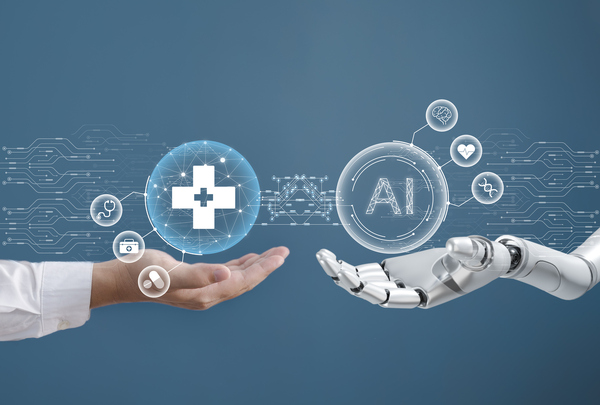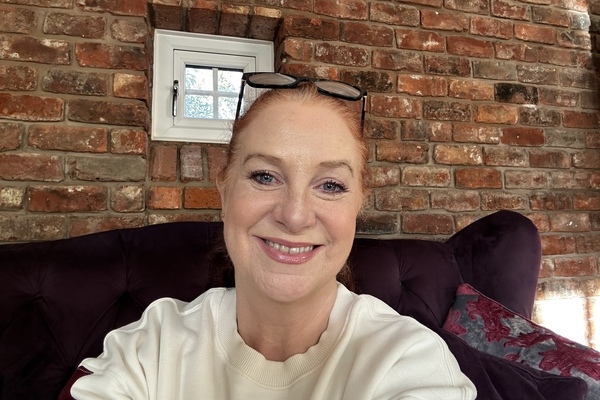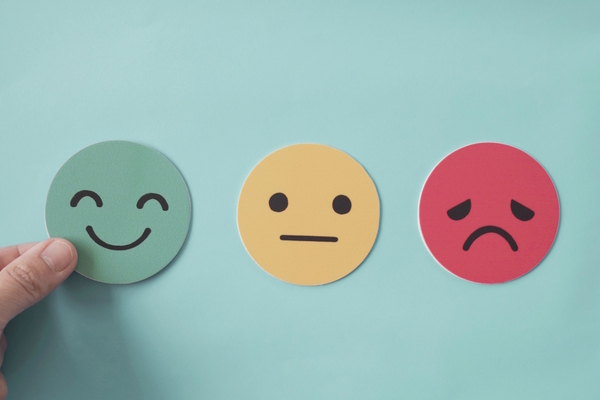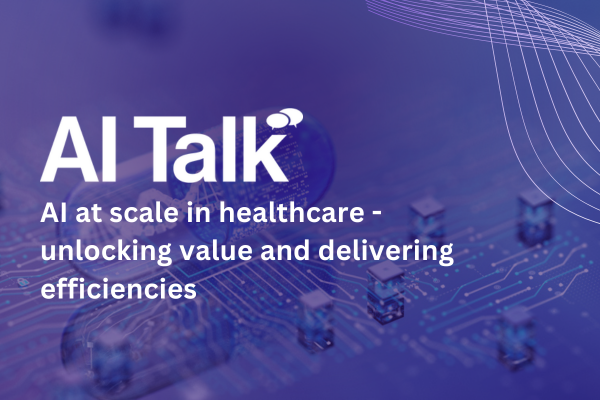The AI that helps doctors see cancer’s complete picture
As healthcare AI adoption accelerates, one European startup is tackling oncology’s core multimodal challenge

Healthcare AI adoption is gaining ground. However, while successful AI applications have emerged across many clinical and administrative areas, complex decision-making at the heart of oncology presents unique challenges that current approaches struggle to address. Despite billions in investment and widespread pilot programs, a gap persists between AI’s capabilities in specific tasks and the integrated reasoning that defines expert oncology practice.
The challenge is not only computational power or data availability. Current AI systems excel at analysing individual data types but struggle with the cross-modal reasoning that defines clinical practice. In cancer care, treatment decisions demand simultaneous analysis of imaging scans, genomic profiles, pathology reports and clinical histories – not as isolated evaluations supporting individual workflow steps, but as interconnected assessments where findings from one source continuously inform interpretation of all others.
“The complexity in cancer is just enormous,” explains Robert Berke, co-founder and CTO of Dutch-Swiss kaiko.ai. “But having access to data doesn’t solve the issue of interpreting the vast amounts of information and its interconnections – which is where the true value exists.”
The multimodal integration challenge
An oncologist reviewing a patient’s CT scan does not analyse images in isolation. They build an evolving understanding by continuously integrating imaging findings with genomic test results, treatment history and clinical notes. A suspicious lesion might prompt additional molecular testing, whose results then reshape interpretation of previous scans and inform treatment planning.
This cross-modal reasoning is fundamental to cancer care. Yet current AI systems are built for specific clinical tasks by design, making them unable to synthesise insights across diverse data types and tasks required for more complex decision-making. Research demonstrates that multimodal AI approaches consistently outperform these single-modality systems in diagnostic accuracy and prognostic prediction, highlighting the mismatch between how current AI works and how medicine is actually practiced.
“Cancer insights emerge from connecting different medical specialties,” says Berke. “We need AI that can mirror this iterative process of building a complete clinical picture while being as easy to use as having a conversation.”
Building kaiko.w: AI that supports clinical reasoning
Operating from Amsterdam and Zurich, kaiko.ai focuses on this core technical challenge through kaiko.w – an AI assistant designed to reason across modalities to support oncology teams throughout the patient journey. kaiko.ai’s European base enables EU data residency and compliance with strict medical data regulations – addressing data privacy concerns that often prevent hospitals from adopting US-based AI tools.
This vision led kaiko.ai to develop purpose-built multimodal foundation models that power kaiko.w – AI systems trained specifically on oncology data to understand interconnections between clinical text, medical imaging and genomic information. Unlike retrofitting general AI for medical use, these models are built from the ground up to handle cancer care’s unique complexity. This architecture enables specialists to interact with all data types through natural language conversation.
Rather than building point solutions for specific tasks, kaiko.w represents an agentic AI assistant that can autonomously execute complex clinical workflows across multiple oncology specialties, providing comprehensive insights and decision support for oncologists, radiologists and pathologists.
“We’re building AI for oncology where every clinical decision benefits from specialist-level AI insights,” explains Berke. This vision involves AI that integrates smoothly into existing clinical processes, designed to scale across different cancer types, specialties and institutional settings.
The clinical partnership advantage
The company’s four-year partnership with the Netherlands Cancer Institute (NKI-AVL), one of Europe’s leading cancer research centres, comes with an important reflection: building AI in isolation from clinical practice creates systematic disadvantages. Through this collaboration, kaiko.ai tests and refines its systems in live hospital environments – identifying workflow integration challenges and data quality issues that only emerge in actual clinical settings.
“Clinical partnerships are more than about validation,” explains Berke. “They are also about understanding how medicine actually works in practice versus how we think it works.” This real-world deployment approach allows the company to address the performance gaps that emerge when models trained on research datasets encounter real-world clinical settings, the subtle ways AI outputs must be presented to busy clinicians, the integration points with existing hospital systems and the feedback mechanisms necessary for continuous improvement.
“Companies developing AI in isolation face a validation gap that’s almost impossible to bridge later,” notes Berke. “We’ve structured our development process around continuous clinical feedback from day one.”
The partnership also provides access to the volume and variety of high-quality, linked datasets necessary to train multimodal AI systems that power kaiko.w – a critical advantage that pure technology companies often lack.
From chat to clinical reasoning
kaiko.w launches with secure AI chat as its first feature, providing the conversational experience clinicians value, but with hospital-grade security, EU data residency and access to clinical guidelines and medical knowledge. “W” stands for “double-you”, your personalised assistant that extends your knowledge and analytical capabilities while learning your preferences and workflow patterns.
“We’re architecting for the future while solving immediate problems today,” says Berke. kaiko.w’s roadmap progresses systematically: from this initial chat capability to consultation assistance that automatically synthesises patient data before appointments, then diagnostic imaging support for tumour analysis, and ultimately the full vision of comprehensive clinical reasoning that can support complex workflows across all cancer types.
Implications for cancer care
As cancer cases are projected to increase by 77 per cent by 2050, healthcare systems face mounting pressure to scale expert-level insights across geographic and institutional boundaries. Current approaches to oncology AI – point solutions that address individual tasks – cannot meet this challenge effectively.
“The potential is to give oncology experts the ultimate tool for navigating cancer’s complexity,” explains Berke. “AI that frees specialists from time-consuming data tasks – finding, loading, analysing – while providing expert-level reasoning and insights through natural conversation.”
The vision represents a shift from AI as helpful add-on to essential clinical tool – the transition from “AI-assisted” to “AI-native” cancer care. In this future, cancer care workflows would be fundamentally redesigned around AI capabilities, with success measured not by technical capabilities alone but by clinical adoption, workflow integration and, ultimately, patient outcomes.
“The goal isn’t to build impressive AI,” concludes Berke. “It’s to build AI that genuinely improves cancer care - and that requires understanding both the technology and the medicine at the deepest level.”
Get your AI assistant for oncology: sign up for early access to kaiko.w’s secure chat!

Business Reporter Team
Most Viewed
Winston House, 3rd Floor, Units 306-309, 2-4 Dollis Park, London, N3 1HF
23-29 Hendon Lane, London, N3 1RT
020 8349 4363
© 2025, Lyonsdown Limited. Business Reporter® is a registered trademark of Lyonsdown Ltd. VAT registration number: 830519543





